Note: The below is a general overview of JEDI’s investment philosophy and approach. The specific investments utilized always depends upon the unique facts and circumstances of each client.
-
Rooted in a historical and factual-based context.
-
As compared with an emotional and opinionated one.
-
-
Disciplined and consistent approach that does involve periodic modifications and adjustments when and as necessary.
-
Favor simple over the complex.
-
Asset allocation:
- Driven principally by (a) the anticipated date when funds will be needed and the timing of distributions along with (b) one’s risk tolerance.
- Buckets of funds depending upon the purpose and ultimate need for funds within the portfolio.
- Holistic approach which incorporates a client’s (and any other immediate family member’s, such as a spouse’s) entire financial condition (e.g. balance sheet, cash flow, quantitative and qualitative factors, future plans, etc. ) and unique facts and circumstances.
- Single largest driver of investment returns and risk.
- Driven principally by (a) the anticipated date when funds will be needed and the timing of distributions along with (b) one’s risk tolerance.
-
Diversification:
-
Both among and within asset classes. The greater the assets being managed, the more sub-asset classes that can be incorporated within the overall portfolio.
- Stocks
- Domestic and international
- Inclusive of global (both); greater emphasis on domestic.
- Large, mid and small
- Inclusive of all-cap (all).
- Growth and value
- Inclusive of blend (both); greater emphasis on value.
- Domestic and international
- Bonds
- Domestic and international
- Credit quality and duration
- Issuer type
- Real estate
- Real estate investment trusts
- Real estate operating companies
- Alternative asset classes
- Gold
- Other types of commodities
- Cash
- Money market fund (Govt.’ and/or Govt.’ Backed)
- Money market fund (Govt.’ and/or Govt.’ Backed)
- Stocks
-
Effectuated by owning baskets of securities through no-load mutual funds (open-end) and exchange-traded funds.
- Both active and passive (index or hybrid index/blend, or combination of the two) funds are often utilized depending upon the construction and dollar totals of the client’s balance sheet and investment portfolio.
- Perform ongoing analysis of existing and prospective funds based upon criteria and standards we believe to be important.
- Utilize both diversified and concentrated (non-diversified) funds (the former to a considerably greater degree).
- Include both style-specific and style-agnostic (more flexible/unconstrained type) funds.
- Seek funds which complement the total portfolio.
- Favor select balanced funds which tend to have good risk-adjusted returns over long periods of time.
- Where possible, prefer multiple managers/committees to one single manager with actively managed funds.
- Always seeking back-up funds that can be used in the event one or more funds close and/or need to be replaced for a specific reason.
-
-
Rebalancing:
- Core (e.g. based upon moves up/down of greater than a threshold % among the various components of the portfolio).
- Satellite (e.g. based upon one or more indicators such as relative and absolute valuation levels).
- Either performed on a regular basis (e.g. annually) or based upon permissible thresholds established for each given investment.
-
No market timing/trading based upon anticipated events.
-
Inability to generate consistent and superior returns over time.
-
-
Avoid the big hit:
- Focus on potential downside risk and protection of principal first and foremost.
- Seek singles and doubles as opposed to home runs and strike outs.
The JEDI Way
-
Fee-only approach to investment management:
- No conflicts of interest or hidden biases with respect to the investment selection and ongoing monitoring process.
- Interests mutually aligned with clients as payment is never paid by a product provider.
- Ability to invest freely, unconstrained by any restrictions.
- This includes our (1) authorization to utilize Dimensional Funds;
(2) capability of investing in certain load (commissioned) mutual funds absent any load (purchases made at the fund’s net asset value);
(3) ability to access institutional share classes among funds offering such share classes despite individual account investments not meeting the typical (prospectus contained) fund requirement; and
(4) approval from one or more investment companies to utilize certain of their closed mutual funds with clients not presently invested in such funds.
- This includes our (1) authorization to utilize Dimensional Funds;
-
Use of an independent custodian:
- JEDI never has access to client funds regardless of whether it has discretionary trading power over an account.
- Statements sent directly to clients.
- Online account access for clients.
-
Relationship-oriented and holistic approach:
-
Consider all of a client’s relevant financial attributes in designing an investment program – and modifying this over time as necessary.
-
As a Registered Investment Advisor and Wealth Management Firm, JEDI’s services encapsulate the entirety of one’s personal financial and/or business planning – which assists us even in working with investment-only clients.
-
-
Periodic client communications through reports, articles, emails, phone calls and meetings.
-
-
Same Team/Eating our own cooking:
-
Utilize many of the same investments for our personal accounts as we do for clients.
-

